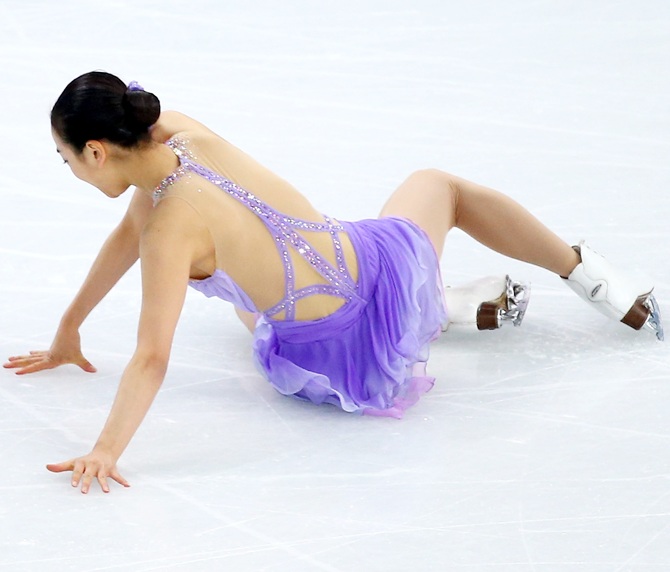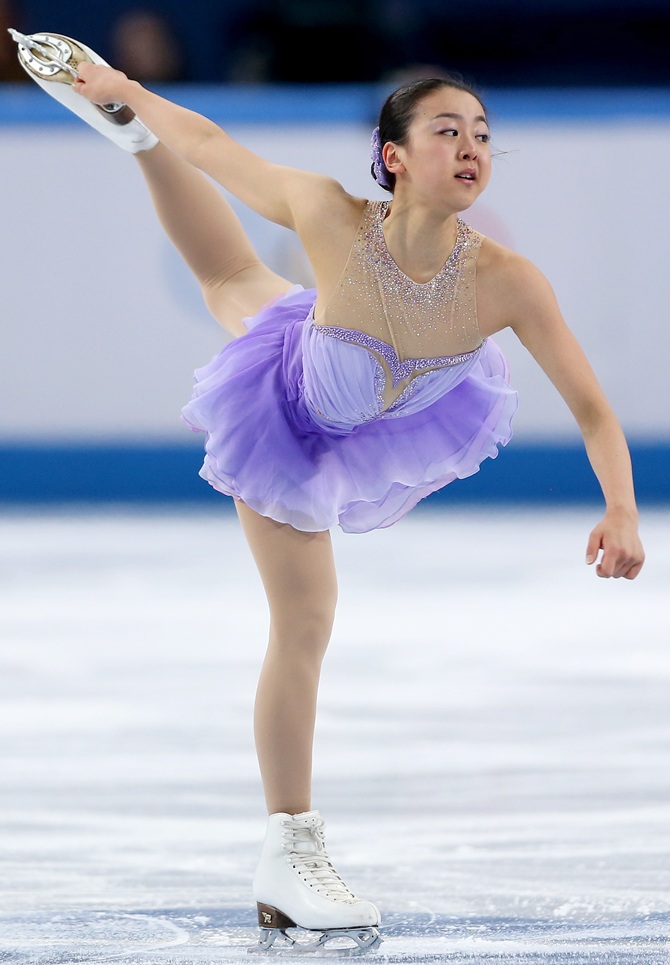 | « Back to article | Print this article |
Japan's Asada wavering on retirement from competition
Japanese figure skater Mao Asada, who rebounded from a disastrous short programme at the Sochi Olympics to gain the best score of her career in the free skate, is now wavering on whether to retire from competition.
Asada, who had been expected to be a top prospect for gold at Sochi, tumbled to 16th in the short programme after falling and an overall lacklustre performance.
She finished sixth after a strong free skate that left her in tears at the conclusion of her competition.
Russia's Adelina Sotnikova took gold and long time rival Kim Yuna of South Korea won silver.
Japan's Asada wavering on retirement from competition
"I was really depressed, my feelings were as low as they could go after the short programme, but after that I still had to skate the free," Asada told a news conference in Tokyo on Tuesday after returning from Sochi.
"Of course I was anxious and scared, but I was able to overcome that to give my best performance ever ... I felt so good I should have been smiling, but some of the previous day's feelings lingered, so I wept."
Asada, who won silver at the 2010 Vancouver Olympics and rebuilt her skating from scratch over the last four years in order to challenge South Korea's Kim for gold, said last year she would retire from competition after Sochi.
On Tuesday, though, she said she was taking part in the Figure Skating World Cup next month in Japan to try to atone for Sochi and to express her gratitude to the nation.
"After that, I want to take time out to think about my future," the 23-year-old said. When pressed, she said chances of her retiring were "half and half."
Japan's Asada wavering on retirement from competition
Known as the only woman to land three of the complicated triple Axel jumps in competition, Asada had struggled with the move this season, prompting some commentators to say she should omit it for the Olympics.
She fell while attempting it in the short programme but landed it the next day.
"Achieving the jump in competition always gave me a huge sense of satisfaction," she said.
"But there wasn't really any choice - it was already in my programme, and I feel it is one of the things I can give audiences."
Though the Olympics overall were bittersweet, Asada added that she had learned valuable lessons.
"I had those results in the short programme and I was really sad. But I didn't give up and went on to achieve what I wanted," she said.
"I think this will be a good experience for the rest of my life."
Asada sidestepped a direct answer when asked how she felt about comments by former Prime Minister Yoshiro Mori, who heads the Tokyo 2020 Olympics organising committee and sparked outrage last week when he said that she had a habit of "always falling at the most critical time" in a competition.
Mori later said his remarks were misunderstood.
"Humans fail. Of course it's not acceptable and nobody who fails wants to," she said.
"I think maybe he regrets his comments a bit."

© Copyright 2025 Reuters Limited. All rights reserved. Republication or redistribution of Reuters content, including by framing or similar means, is expressly prohibited without the prior written consent of Reuters. Reuters shall not be liable for any errors or delays in the content, or for any actions taken in reliance thereon.


